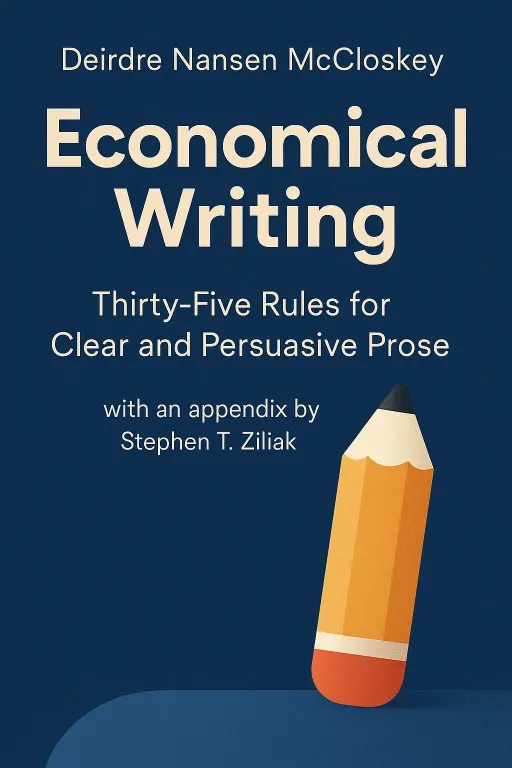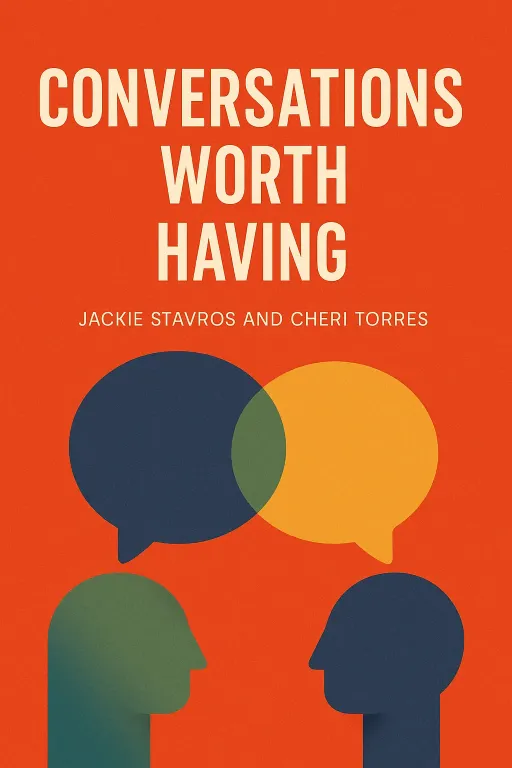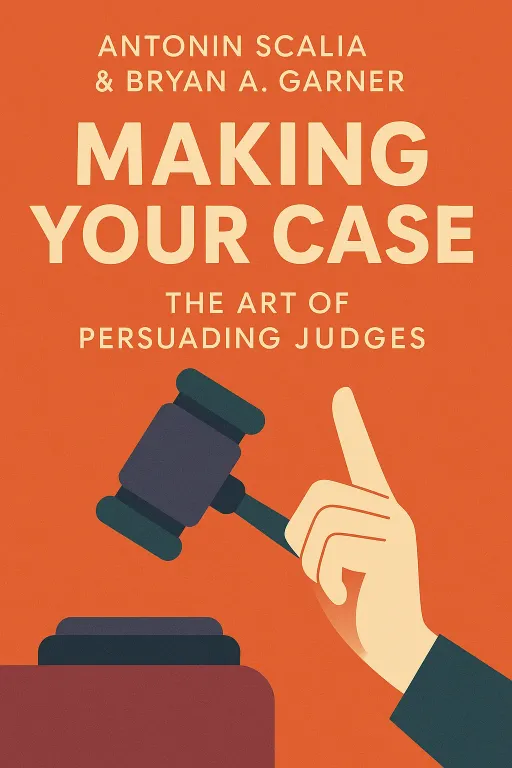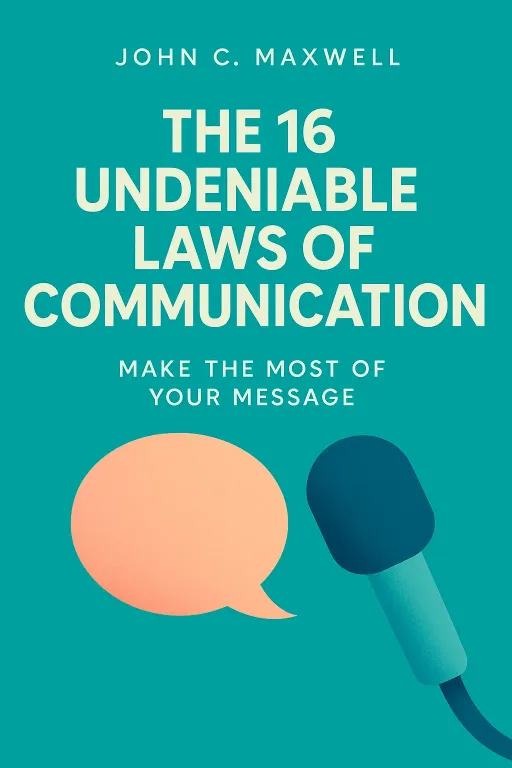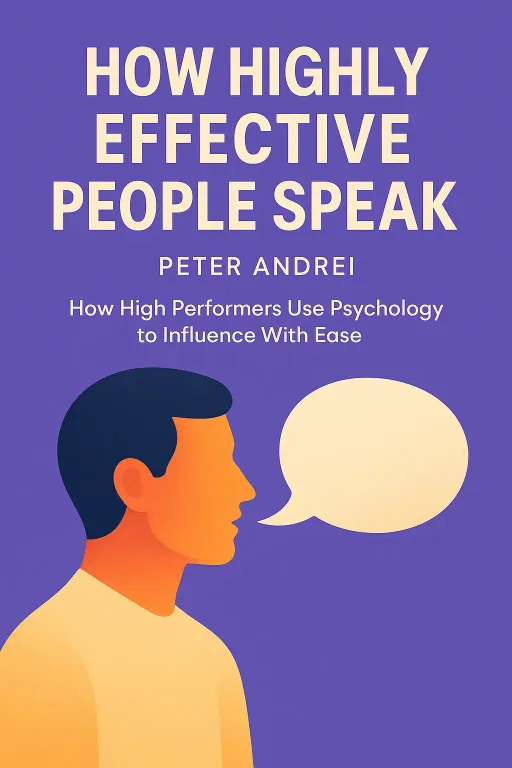
How Highly Effective People Speak
10 minHow High Performers Use Psychology to Influence With Ease
Introduction
Narrator: Why is it that some people can walk into a room, share an idea, and instantly command attention and agreement, while others, with equally brilliant ideas, seem to speak into a void? It’s a frustrating experience many have faced: presenting a well-reasoned argument only to be met with blank stares or outright rejection. The author Peter Andrei describes this feeling as spending your life "swimming upstream," constantly fighting against an invisible current of misunderstanding and resistance. What if that current wasn't random, but a predictable force of human psychology? And what if you could learn to navigate it, to turn that current in your favor?
This is the central promise of Peter Andrei's book, How Highly Effective People Speak: How High Performers Use Psychology to Influence With Ease. The book argues that the secret to powerful communication isn't about having a louder voice or a bigger vocabulary. Instead, it’s about understanding the hidden psychological principles that govern how the human mind receives and processes information. It offers a blueprint for influence, built not on opinion, but on decades of scientific research.
The Speaker Forged by Struggle
Key Insight 1
Narrator: Before Peter Andrei became an author and public speaking coach, he was a young man intimately familiar with the pain of ineffective communication. His journey wasn't one of natural talent but of determined effort against significant obstacles. As a child, Andrei struggled with a speech impediment, a challenge that made the simple act of expressing himself a daily battle. This personal struggle ignited a deep desire not just to overcome his own limitations, but to understand the very mechanics of powerful speech.
His quest for mastery led him to the world of competitive speech and debate. This wasn't a casual hobby; it was a dedicated pursuit of excellence. The story of his high school career culminates in a significant victory: winning the state championship of the Massachusetts Speech and Debate League. This achievement, along with over 27 other public speaking awards, wasn't just a collection of trophies; it was proof that the skills of effective communication could be learned and mastered through deliberate practice.
Andrei’s education continued in a less formal but equally valuable setting: the Massachusetts Statehouse. While working there, he had a front-row seat to observe seasoned politicians in their element. He watched senators and representatives debate, persuade, and connect with their audiences, analyzing their techniques—what worked, what didn't, and why. He saw firsthand how language could be used to build consensus or sow division. This real-world laboratory, combined with his personal study of history's most famous speeches, provided him with a rich, practical understanding of influence that would become the foundation for his writing. His work, therefore, comes not from an academic in an ivory tower, but from a practitioner who fought his own communication battles and emerged a champion.
The Psychological Blueprint for Influence
Key Insight 2
Narrator: The core thesis of How Highly Effective People Speak is a simple but profound secret. Andrei reveals that "highly effective people speak how the human mind evolved to interpret information." They don't fight against human nature; they align with it. The book posits that for centuries, we've been taught communication techniques that are fundamentally at odds with our cognitive wiring. We try to persuade with logic and data, only to find our message doesn't stick.
Andrei argues this is because we are ignoring the "hidden, little-known secrets of psychology" that truly drive human behavior. To build his case, he grounds his work in extensive research, referencing 57 proven scientific studies to support his claims. These studies form the bedrock for the 194 specific communication habits he identifies throughout the book. The central idea is that our brains are not blank slates; they are shaped by evolutionary pressures and operate on a set of cognitive shortcuts and biases. To ignore these is to communicate ineffectively.
For example, the book explores how high performers leverage cognitive biases not to manipulate, but to make their message more resonant and understandable. They understand that the human mind is drawn to stories, not just statistics, and that it responds to emotional cues as much as, if not more than, logical arguments. By learning to frame ideas in a way that is compatible with these built-in mental models, a speaker can stop "swimming upstream" and instead ride the powerful current of human psychology. The book is presented as a guide to this alignment, promising to help readers finally change minds, win friends, and influence people with ease.
From Theory to Practice: The Habits of High Performers
Key Insight 3
Narrator: While the book's foundation is theoretical, its goal is intensely practical. Andrei moves beyond abstract psychological principles to outline concrete habits that readers can adopt. The 194 habits detailed in the book cover a wide spectrum of communication, from persuasive language and vocal tonality to body language and the strategic use of silence. The focus is on providing a comprehensive toolkit for influence in any situation, whether it's a formal presentation, a business negotiation, or a casual conversation.
The book delves into specific cognitive biases and how to ethically leverage them. For instance, it might explore the "contrast effect," showing how presenting two options sequentially can make the preferred option seem far more attractive. Or it might discuss the "availability bias," where people overestimate the importance of information that is easily recalled, and teach speakers how to make their key messages more vivid and memorable.
The real-world impact of these principles is illustrated by stories of readers who have applied them successfully. One particularly compelling anecdote comes from an entrepreneur who reviewed the book on Amazon. This business owner, seeking to improve their performance, read the book and began applying its principles to their professional interactions. They described the experience as a "huge game-changer" for their business. This story exemplifies the book's promise: that by mastering these psychological habits, anyone can gain confidence and become a more effective communicator, leading to tangible, positive results in their personal and professional lives.
A Polarizing Reception: Game-Changer or Repetitive Manual?
Key Insight 4
Narrator: Despite its bold claims and scientific backing, How Highly Effective People Speak has not been universally praised. The book's reception among readers is deeply polarized, painting a picture of a work that is either profoundly helpful or deeply flawed, with little middle ground. The book has not received attention from major media critics, so its reputation has been forged entirely in the court of public opinion on platforms like Amazon and Goodreads.
On one hand, a significant portion of its audience finds it immensely valuable. On Amazon, a commanding 66% of over 370 reviewers gave the book a 5-star rating. These readers, like the entrepreneur who called it a "game-changer," praise its practical advice and insightful psychological framework. They see it as a powerful tool that has genuinely improved their communication skills.
On the other hand, a vocal minority expresses strong disappointment. Critics often point to the author's writing style, describing him as "verbose and overzealous." A common complaint, particularly on Goodreads where the reviews are less positive, is that the "author repeats himself over and over." Some readers have also criticized the book for poor formatting and grammatical errors, which they find ironic in a book dedicated to the art of effective communication. This mixed reception suggests that while the core ideas may be powerful, their presentation in the book may not resonate with everyone, leaving some readers feeling frustrated by the delivery.
Conclusion
Narrator: The single most important takeaway from How Highly Effective People Speak is that true influence is not an art form reserved for the naturally gifted; it is a science that can be learned. The path to becoming a powerful communicator lies not in mastering clever rhetorical tricks, but in developing a deep and practical understanding of human psychology. The book's central message is a call to stop fighting against the grain of how our minds work and instead learn to align our message with the brain's innate programming, making our ideas feel intuitive, compelling, and right.
Ultimately, the book presents a fascinating paradox. It offers a framework for masterful communication that is backed by science and the author's own hard-won experience. Yet, its own reception shows that its message is sometimes lost on its audience, who criticize the very communication of its ideas. This leaves the reader with a challenge: Can you extract the potent, science-backed principles of influence from a text that some find flawed? And in doing so, can you prove the book's ultimate point—that it is the underlying psychological substance, not just the surface-level delivery, that holds the true power to persuade?
